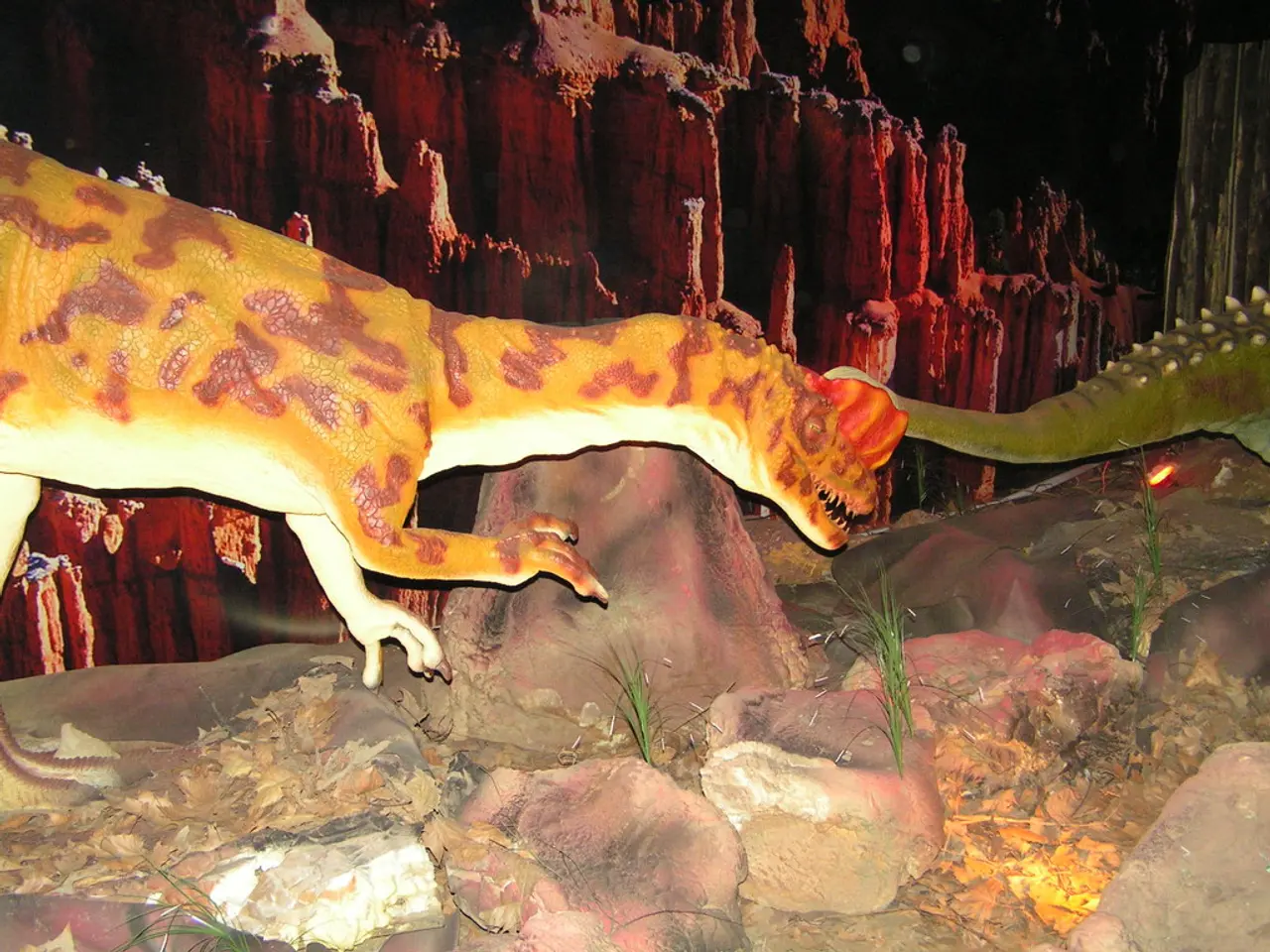Competition Between Pioneering Paleontologists: Unveiling America's Prehistoric Giants Through Rivalry
================================================================================
In the late 19th century, the American West served as the battleground for a fierce and bitter rivalry between two prominent paleontologists, Othniel Charles Marsh and Edward Drinker Cope. Known as the Bone Wars, this 30-year competition to discover and describe new dinosaur species profoundly impacted paleontology and our understanding of dinosaurs.
The Beginning of the Bone Wars
The feud began after Marsh and Cope met in Berlin and turned into an escalating competition to outdo each other in fossil discoveries across the western United States. Marsh, who was financially backed by a $100,000 inheritance, was able to spend heavily on fossil hunters and expeditions, unearthing about 500 new fossil animals.
The Intense Race for Discoveries
Both men rushed to find and name new species first, often using aggressive and sometimes unethical methods such as hiring spies to steal fossils, and even resorting to dynamite blasts at dig sites, which damaged many specimens. The intense race resulted in the discovery of more than 140 new dinosaur species combined, with Marsh identifying about 86 species (including famous dinosaurs like Triceratops, Stegosaurus, and Brontosaurus) and Cope discovering around 56 species.
The Lasting Impact on Paleontology and Dinosaur Understanding
Their discoveries drastically expanded knowledge of North American dinosaurs, shifting scientific views. For example, discoveries by Marsh and others during the Bone Wars helped prove that some dinosaurs were bipedal, a revolutionary idea at the time. Marsh’s fossil discoveries also provided important evidence supporting Charles Darwin’s theory of evolution, particularly through his studies of horse evolution.
Despite damaging practices, their combined efforts laid the foundation for modern paleontology in the U.S., greatly enriching dinosaur fossil collections now housed at major institutions like the American Museum of Natural History (Cope’s collection) and Yale’s Peabody Museum (Marsh’s collection).
A Media Spectacle
The Bone Wars were a media spectacle, with newspapers of the time eagerly reporting on the latest discoveries and controversies, often sensationalizing the feud for public consumption. The story of the Bone Wars continues to captivate audiences, inspiring numerous books, documentaries, and fictionalized accounts.
Lessons Learned
The rivalry harmed both men’s reputations and finances—Cope exhausted his fortune and died financially ruined, while Marsh died a few years later. However, their scientific contributions remain invaluable. The Bone Wars highlighted the importance of collaboration and ethical conduct in scientific research, lessons that continue to resonate in the field today.
The intense competition between Marsh and Cope pushed the boundaries of what was possible, encouraging future generations of scientists. The rivalry offers valuable lessons for both scientists and the general public about the balance between ambition and integrity in the pursuit of knowledge.
References
[1] Cope, E. D. (1872). On the Osteology of the Dinosauria. American Journal of Science, 21(77), 277-350.
[2] Marsh, O. C. (1878). On the Osteology of the Dinosauria. American Journal of Science, 26(91), 367-405.
[3] Gould, S. J. (1980). The Paleobiology of the Dinosauria. Cambridge University Press.
[4] Padian, K. (2016). The Bone Wars: The Excavation and Evolution of the World's Greatest Dinosaur Rivalry. W. W. Norton & Company.
- Today, research in paleontology continues to unveil secrets about dinosaurs and our planet's history, shedding light on the evolution of life as we know it.
- The exploration of space-and-astronomy and advancements in technology have opened up new avenues in the study of energy and natural history, contributing to our understanding of the universe and its resources.
- In the realm of education-and-self-development, one can find numerous resources on topics like science, helping individuals expand their knowledge and broaden their perspectives.
- Medical-conditions are often topics covered in news and lifestyle discussions, highlighting the importance of awareness, prevention, and treatment strategies.
- The world of entertainment, including films and documentaries, offers insights into various aspects of dinosaur research, making learning engaging and accessible for a broader audience.
- General-news outlets frequently report on the latest discoveries and breakthroughs in science, technology, and medicine, keeping the public informed about the advancements shaping our world.
- Sports not only provide physical and mental benefits but also foster a spirit of competition that can drive individuals to push their limits and strive for greatness, much like the pioneers of paleontology during the Bone Wars.




